

Classic Buses Profiles
London Daimler/Leyland Fleetlines page (by Shane Conway)
Last updated 9 May 2024

SOME LINKS WITHIN THIS WEBSITE: Home Email Links THE COMPLETE WEBSITE MENU Events Diary Halfcab list Small-Ads Classic Irish Buses Classic Manx Buses
London Transport received the first of the 2,646 DM and DMS class buses into service in December 1970, after gaining experience with the eight XF class Fleetlines and 50 XA class Leyland Atlanteans new in 1965/66. The DMS type buses were bodied by both MCW and Park Royal, and seating was either 68 (DMS) or 71 (DM) in a dual door layout. While some early buses arrived with Gardner engines, the vast majority had Leyland O.680s fitted.
The first buses went into service on January 2nd 1971 on routes 95 and 220, operated by Brixton and Shepherds Bush garages. Following on from the Routemasters, these were promoted as the Londoner, but soon became unpopular with the public due to slower boarding times than with open platform buses. In an attempt to overcome this, London Transport began fitting automated fare collection cabinets on some buses, hence the lower seating capacity.
These machines were coin-operated turnstiles, and the idea was to provide a faster, second boarding method as an alternative to paying the fare to the driver. This system also became unpopular as they were unreliable, and on May 27th 1979, the system was formally abandoned and removal of the equipment commenced. London Transport's overhaul programme of splitting chassis and body didn't really work on rear engined buses, as it had done on RTs and RMs. From 1978 onwards London Transport began buying MCW Metrobuses and Leyland Titans to start replacing the Fleetlines. Ironically some Routemasters would go on to outlive all the Fleetlines, Metrobuses and Titans.
While some early withdrawals went for scrap, London Transport appointed Ensignbus of Purfleet to handle the sales of these buses, and over 2,000 of them went to various operators across Britain and elsewhere. Removing the London spec options transformed them into much more reliable buses, and the large batch which went to Hong Kong bear testimony to that, as they worked in far more severe conditions than in London. In Britain they were acquired by a mix of P. T. E., municipal, N. B. C. and private operator fleets. Ironically, some buses were later re-acquired by the new London Buses subsidiaries when the route tendering started in the mid 1980s, with several of the independent contractors across London also using them. As mentioned above, London began replacing Fleetlines with new Metrobuses and Titans (around 2,500 of them), with a possible knock-on effect preventing other operators from ordering new buses. Had the DMS worked better in London, then new buses could have been bought elsewhere.
Fleet summary of the DMS/DM type.
The DM class didn't have the turnstile equipment and were used as crew operated buses, these being DM918 - 1247, 1703 - 1832 and 2527 - 2646. Later surviving DM class were altered for driver only use and reclassified D. DM2646, which entered service in October 1978, joined a dozen Routemasters in receiving a replica of the 1829 era livery used on Shillibeer horse-drawn buses, to mark 150 years of bus services in London.
By the time of my London visits in 1986/87, most red survivors were of the B20 type, and were largely concentrated on routes in south east London, in areas such as Croydon, Brixton, Thornton Heath, Wimbledon, Raynes Park and Morden, the latter two places being where I encountered most of them. Older examples were found elswhere in the capital, including those on tendered routes and sightseeing services. The end of the red DMS in London service occurred 22 years to the day after DMS1 had entered service, with DMS2438 doing its last run in 1993.
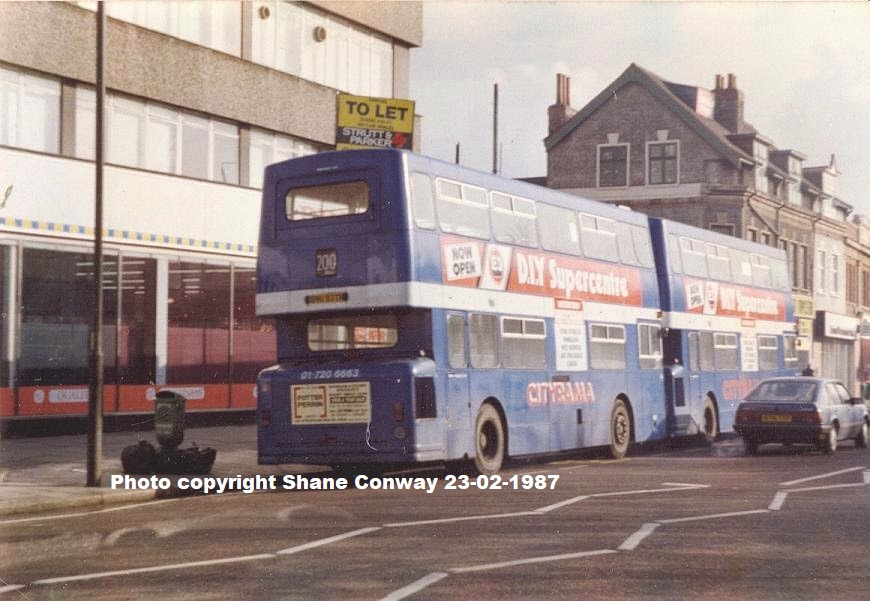
Under the tendering process, route 200 was awarded to Cityrama and the former DM937 is seen here in Raynes Park on 23rd February 1987.
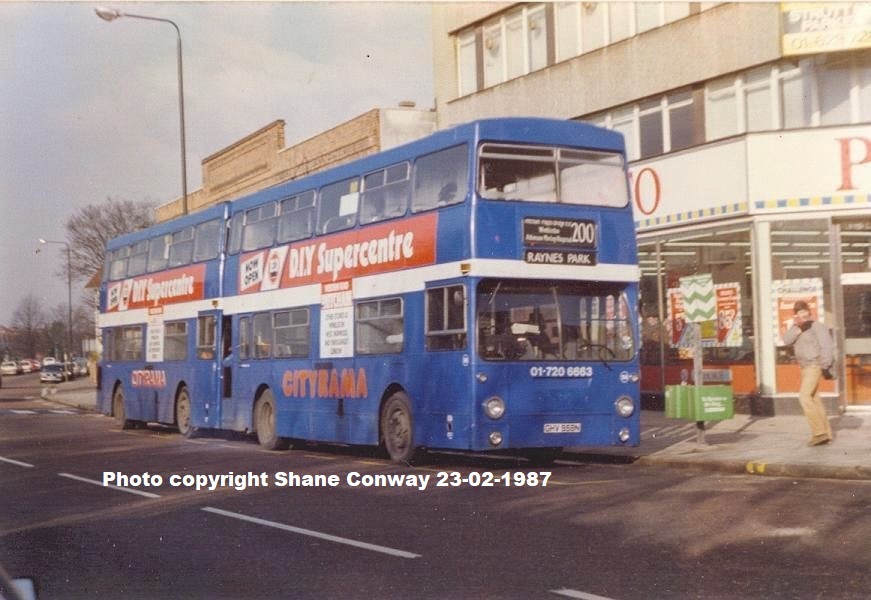
DM958 was parked in front of 937 on that occasion. Cityrama also operated Fleetlines as opentop buses on sightseeing work.
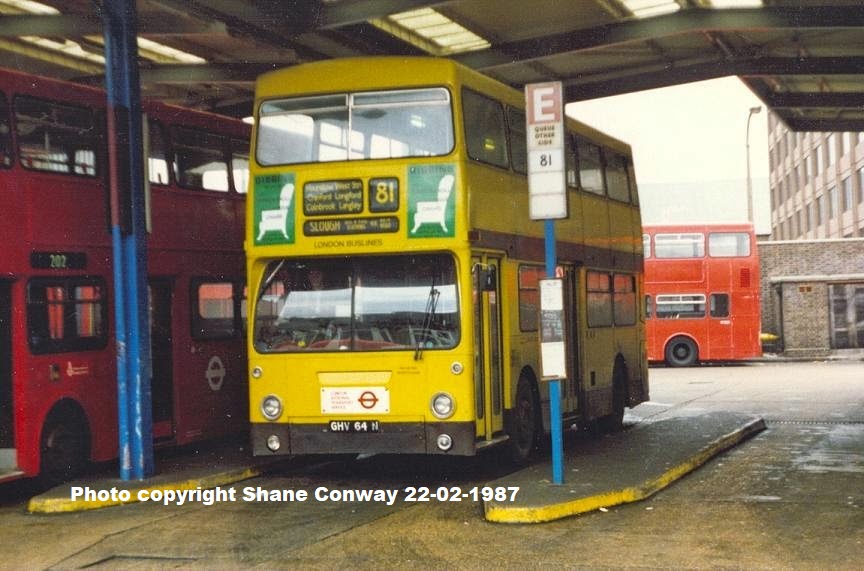
DM1064 was used by London Buslines on route 81, Hounslow to Slough. Seen here in Hounslow bus station parked with two MCW Metrobuses.
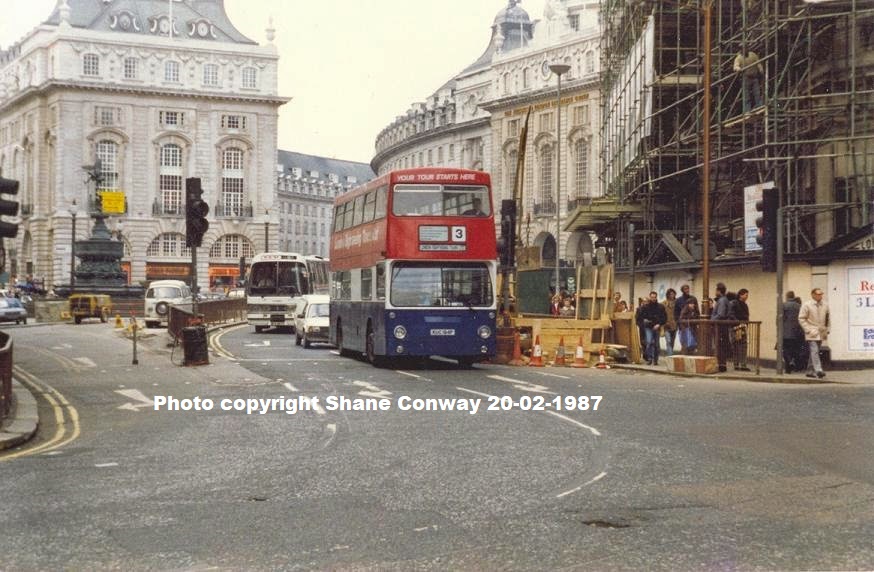
DM1194 was observed as a sightseeing bus with London Sightseeing Tours approaching Piccadilly Circus.
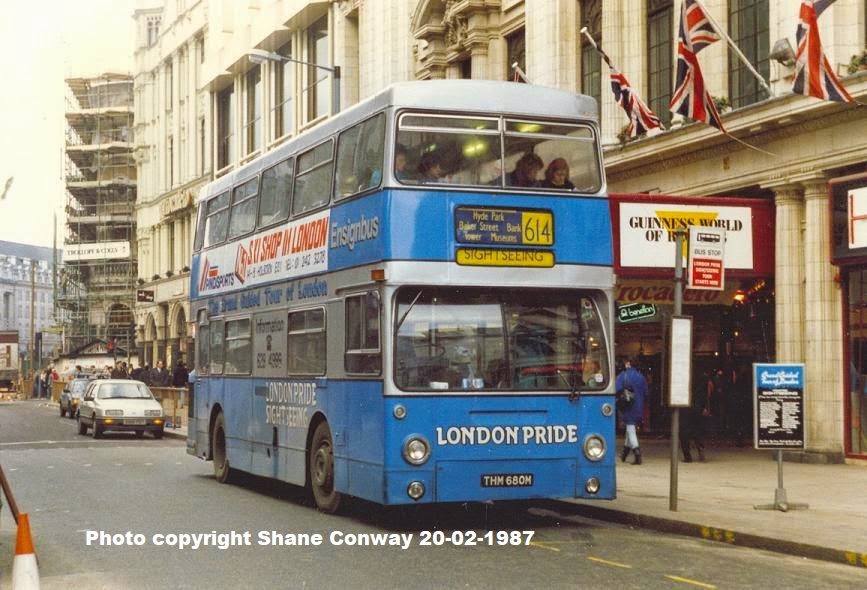
DMS1680, in Ensignbus blue and silver was part of their London Pride Sightseeing tours operation.
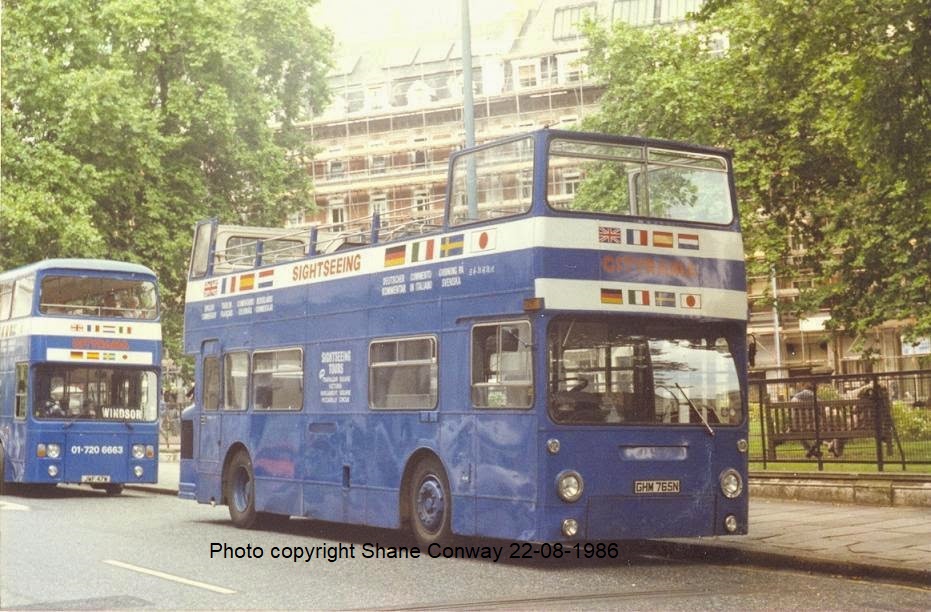
DM1765 was part of the Cityrama opentop sightseeing fleet, seen in Grosvenor Gardens near Victoria in 1986.
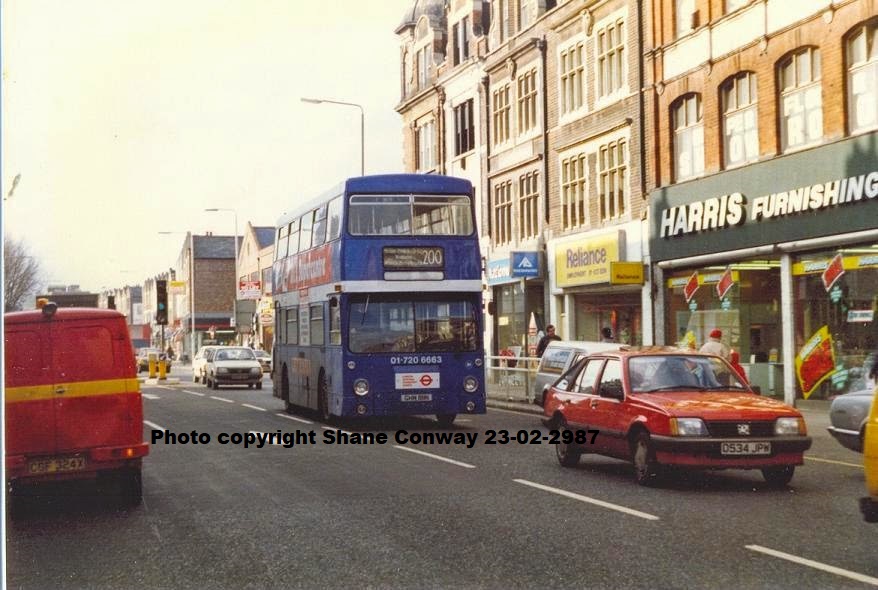
Heading in the opposite direction to 937 and 958 was DM1811, presumably out of service when seen on 23rd February 1987.
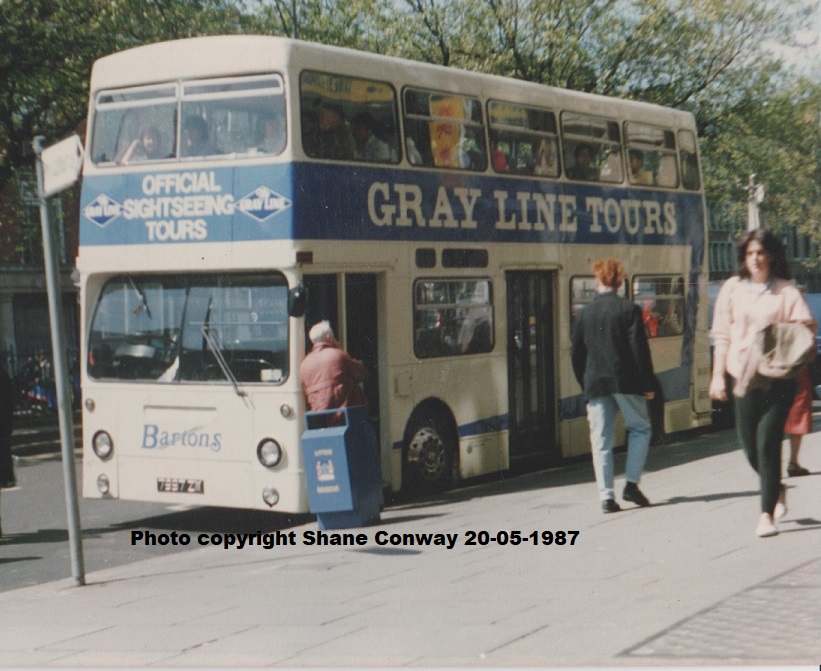
The former DMS1838 crossed the Irish Sea and joined the fleet of Barton's Transport in Maynooth for use on the Gray Line tour of Dublin. It later passed to Dualway Coaches as an opentopper.

DMS1911 was based in the Weston-super-Mare area in 1991 as a hospitality bus. Note the large wicker chairs at the front of the upper deck.
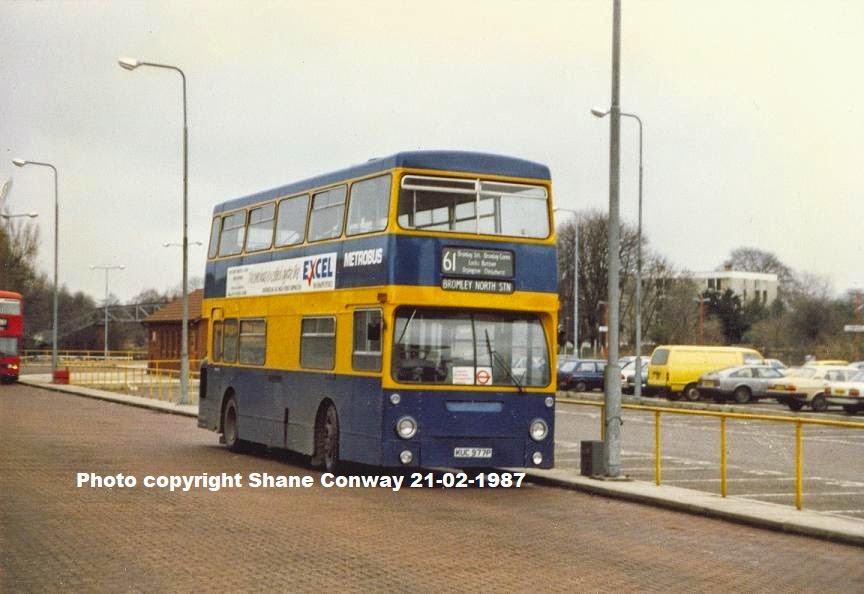
DMS1977 was one of thirteen Fleetlines operated by Metrobus of Orpington on tendered routes in the Bromley area.
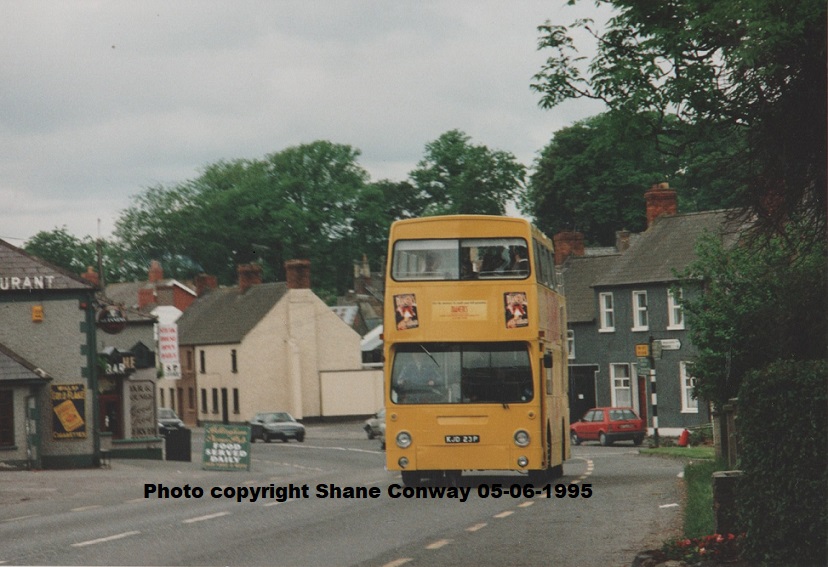
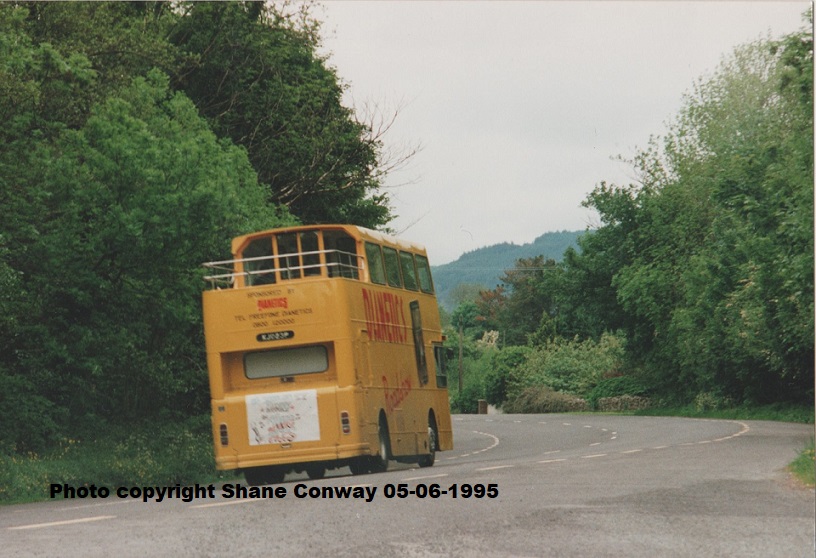
Not all DMS types were sold to PSV operators. 2023 was altered for the Labour party as an election campaign bus, later passing to the Church of Scientology. It is seen here in Castlebellingham, Co. Louth (top) and later in Ravensdale on the Dundalk to Newry road. I think this was the last time I saw a Fleetline in action.....
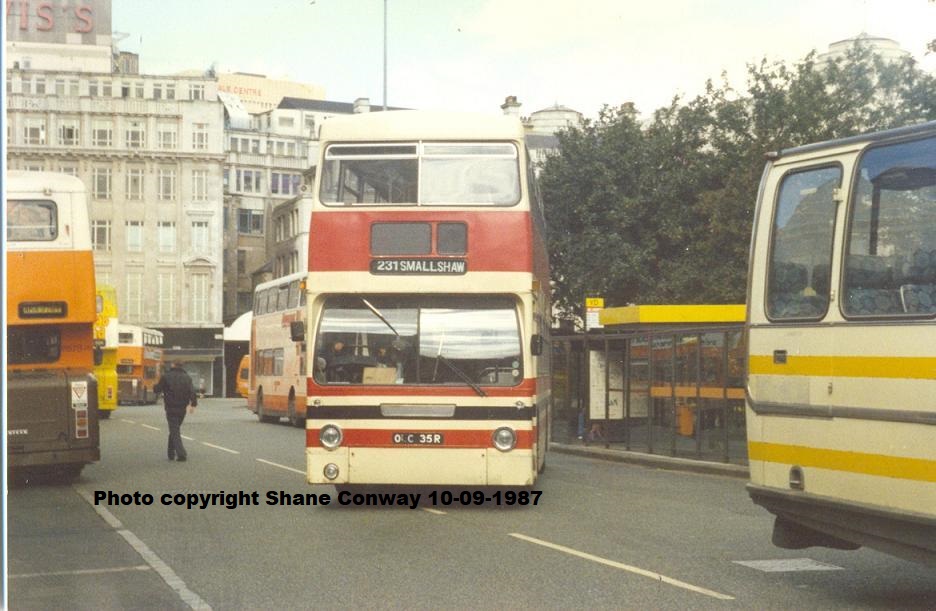
DMS2035 provides an example of the used Fleetlines acquired by Mayne of Manchester, seen here in Piccadilly Gardens before the Metrolink was ever thought of.
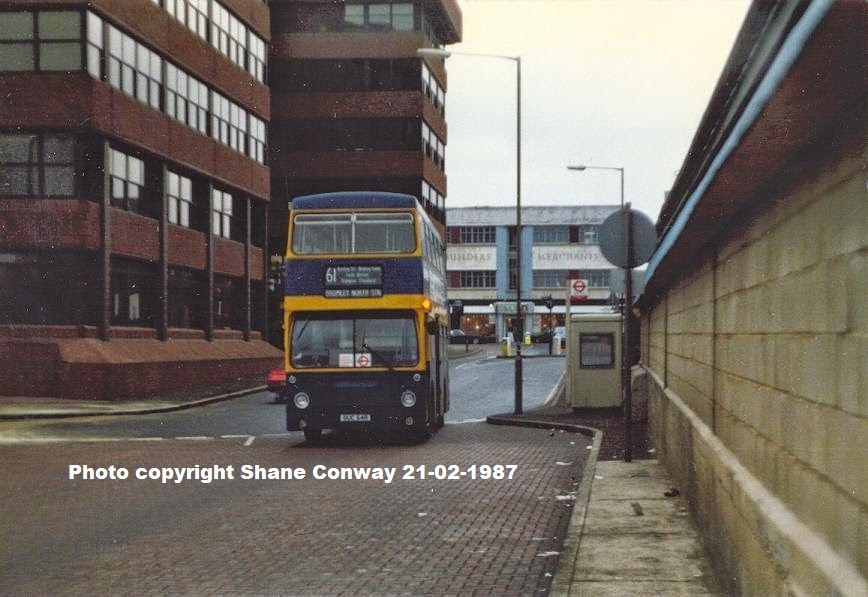
DMS2054 was another of the thirteen Fleetlines operated by Metrobus of Orpington on tendered routes in the Bromley area, and is seen here arriving at Bromley station.
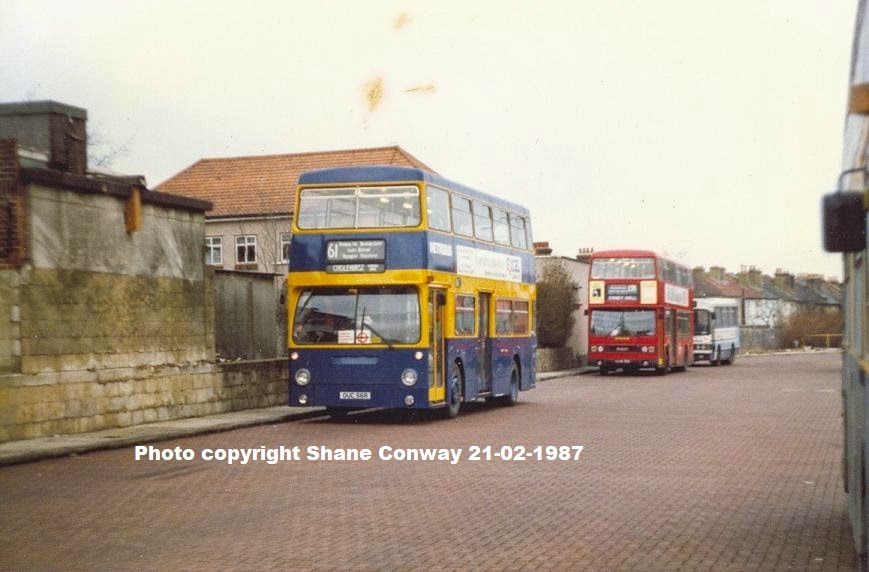
DMS2054, also with Metrobus of Orpington, is seen here with a London Titan on route 138 and a Ford midibus on route 146 at the back of the line-up.
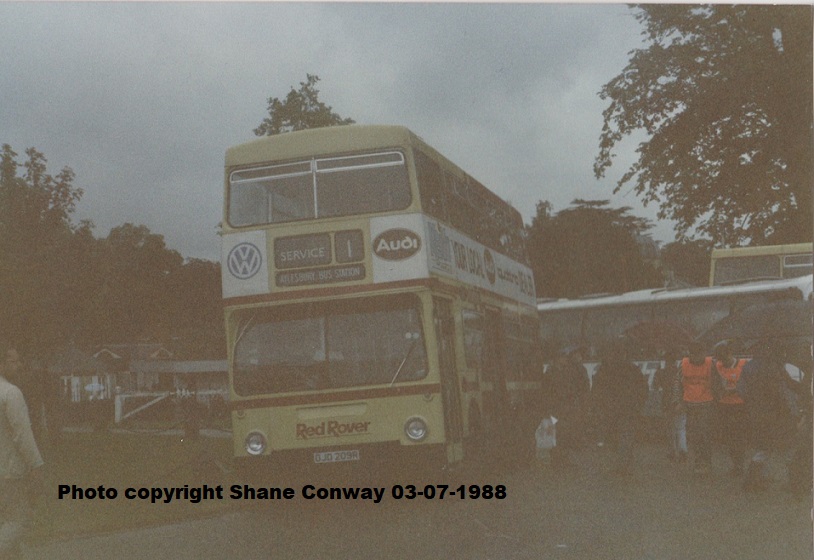
Not a great shot, but DMS2209 is seen here with Red Rover of Aylesbury on a shuttle service for Showerbus in 1988.
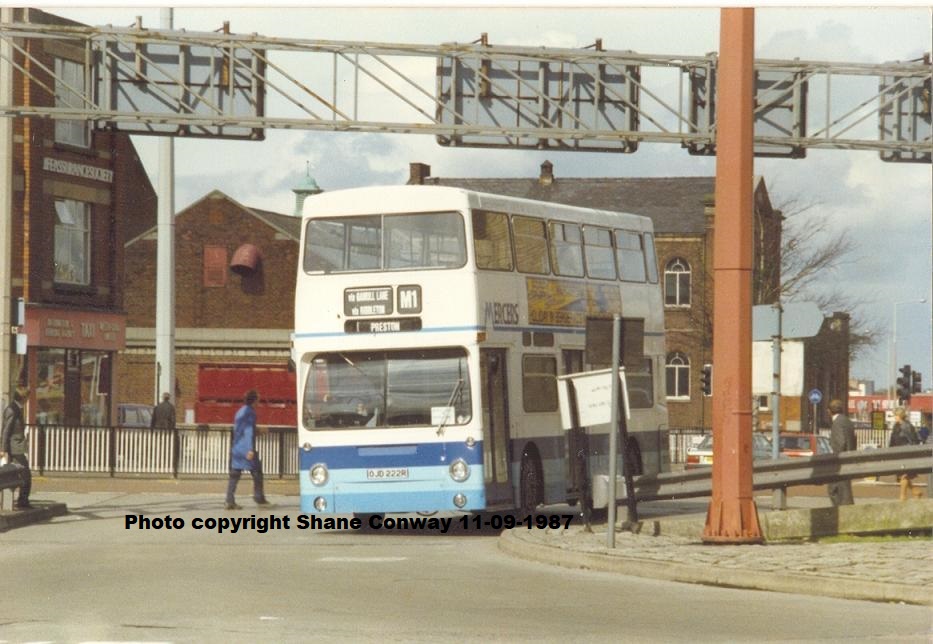
The former DMS2222 passed to Mercers Coaches of Longridge and is seen here entering Preston bus station in 1987.
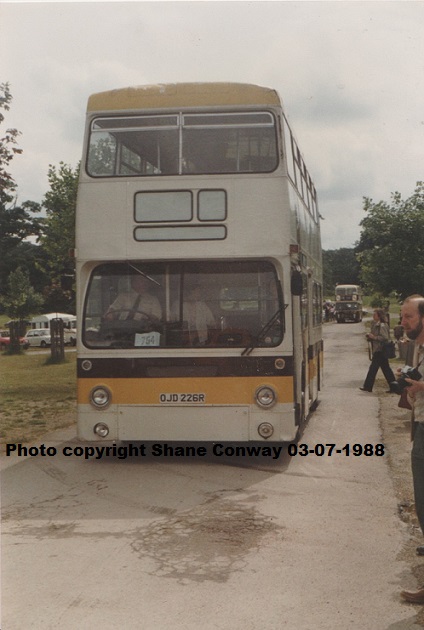
DMS2226 passd to Motts Travel of Thame in Oxfordshire, and was also seen at Showbus in 1988.
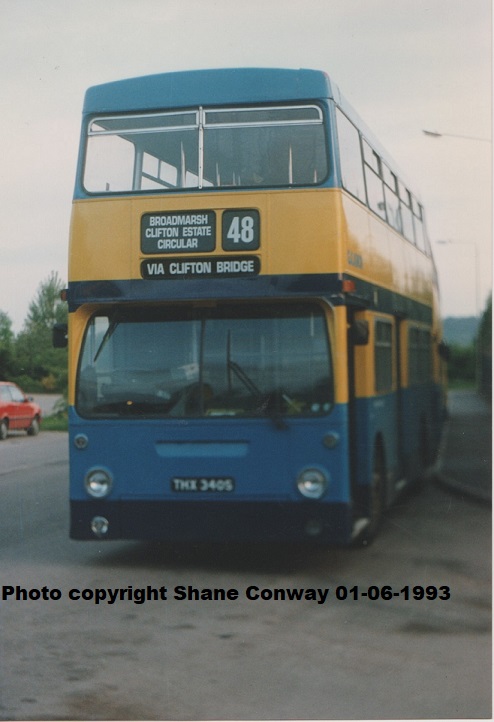
One of many DMS class acquired by Kinch of Barrow-on-Soar was DMS2340, for us on services in the Leicester and Nottingham areas.
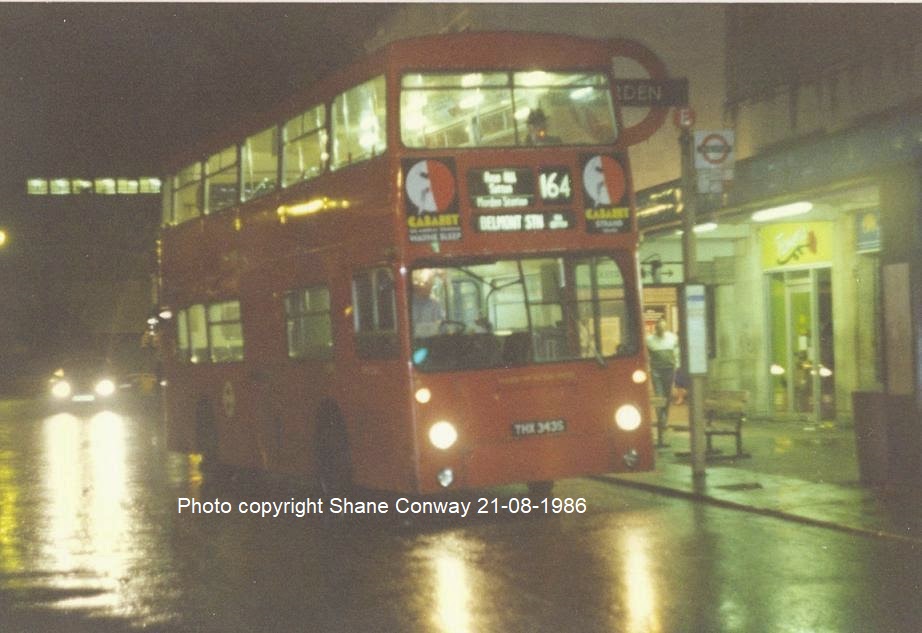
On to red buses now, and here is DMS2343 on a night working of route 164 at Morden station in August 1986.
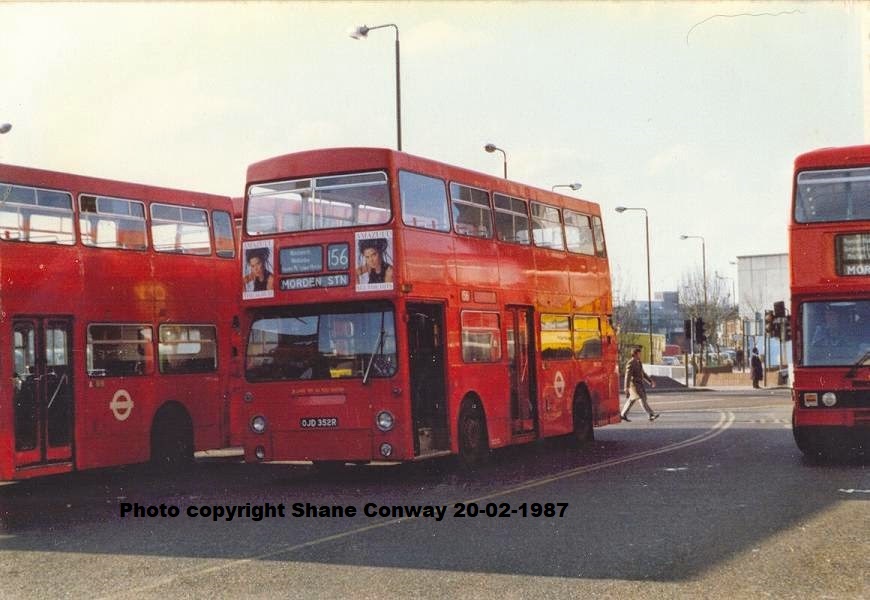
Also seen at Morden was DMS2352 on route 156 with two other DMS and a new Olympian on the 118.
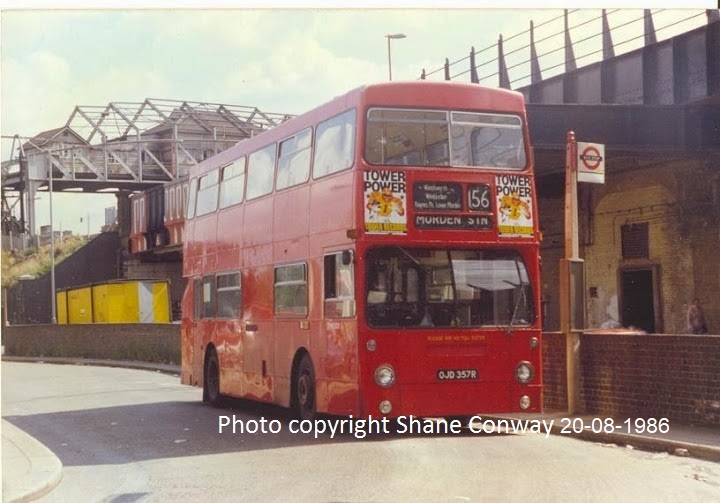
My first ever trip on a DMS was on this bus on the 156 from Clapham Junction to Morden, via Raynes Park which was my destination on that journey. 2357 is now preserved.
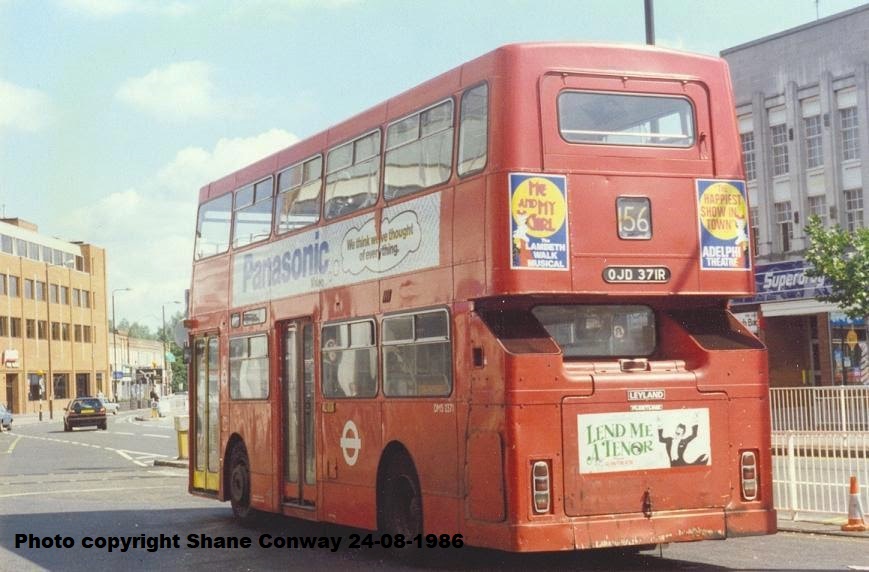
The revised rear profile of the B20 type DMS, as seen on DMS2371 also at Morden station.
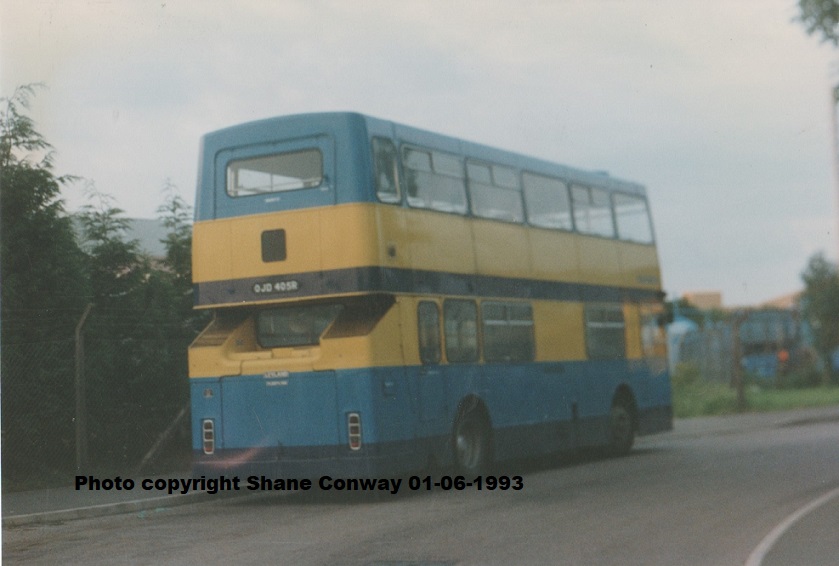
Another of the Kinch fleet was DMS2405, seen at their depot in Barrow-on-Soar in 1993. Kinch was later taken over by the Wellglade Group and became KinchBus, and their present fleet is all single deck.
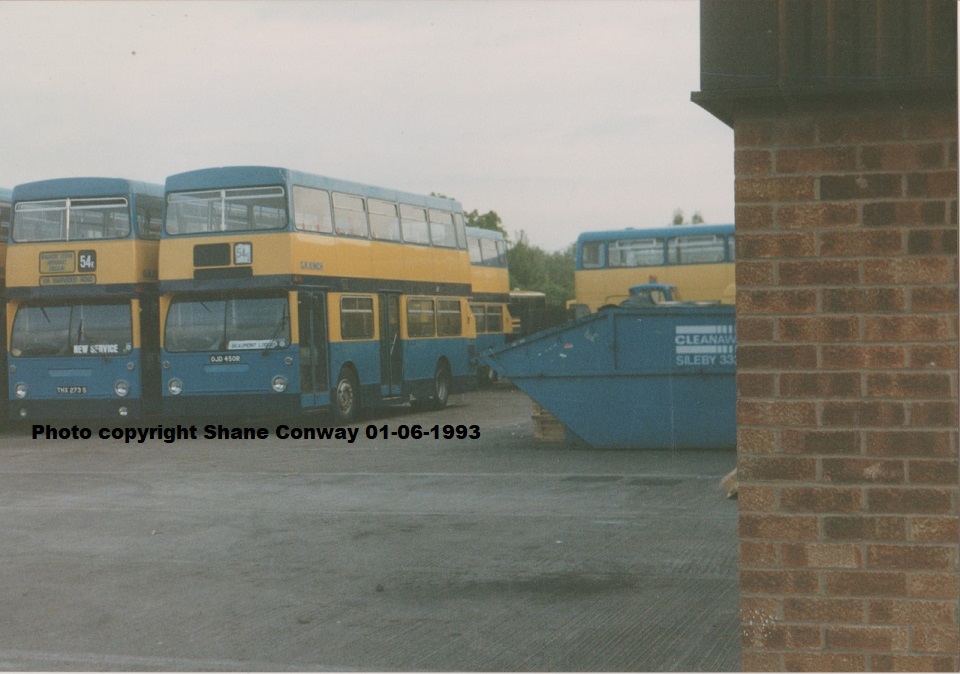
Finally, two more DMSs from Kinch, 2273 on the left has an MCW body, while 2450 on the right has a Park Royal. There are small detail differences between the two makers products, although outwardly identical.
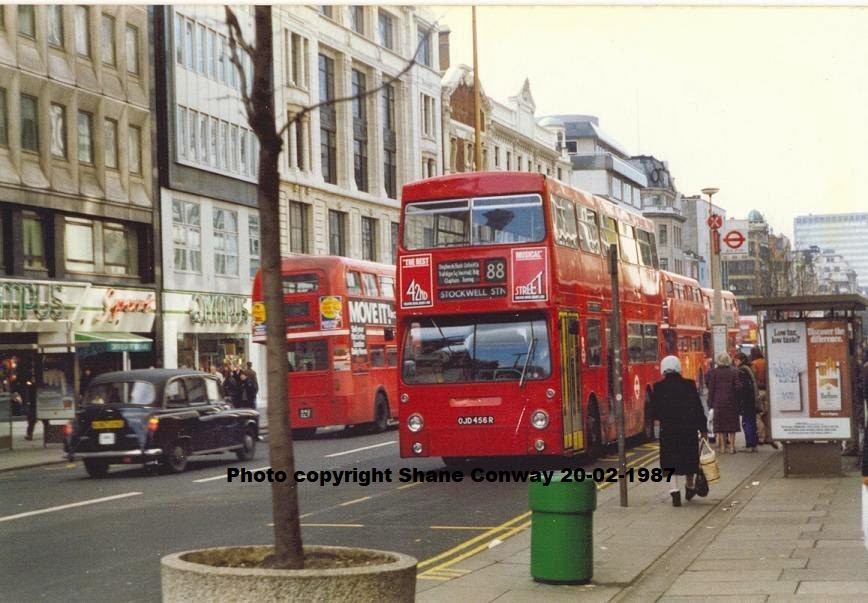
Typically, in a fleet of over 2,500 buses there would be some with unique features, 2456 being one. Its front entrance has been modified to the split level steps and four piece doors which were used on the Leyland Olympians later. It was usually found on route 88, which was otherwise worked by Routemasters.
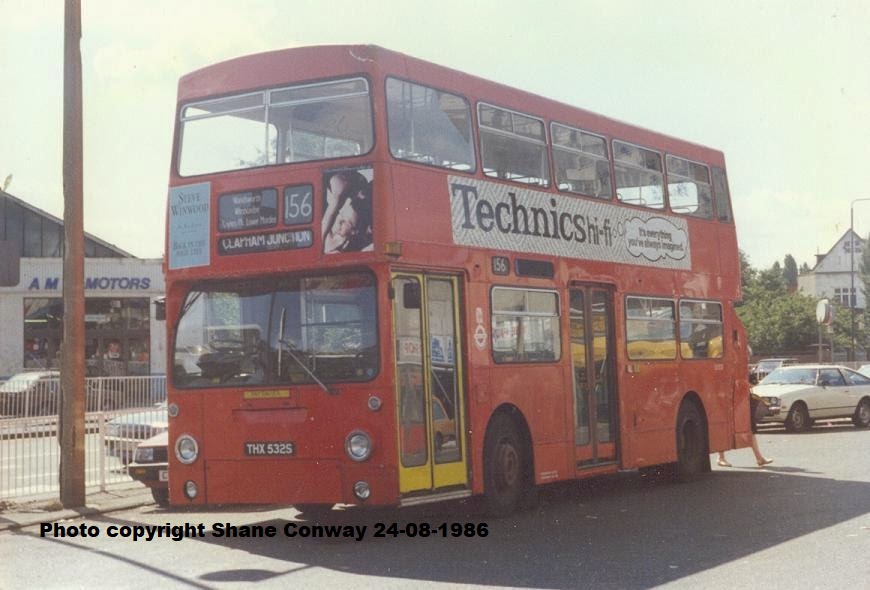
We're back in Morden again, and find DM2532 resting from its 156 route duties in August 1986.
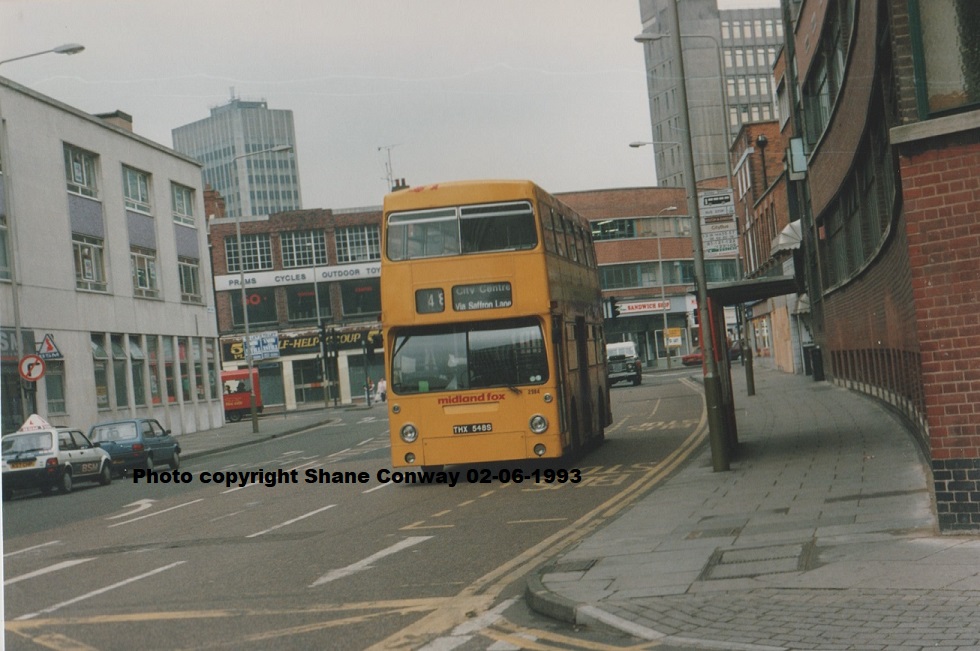
Another East Midlands operator of DMS buses was Midland Fox, who took both versions of thes type at different times. Here DM2548 is seen in the centre of Leicester in 1993.
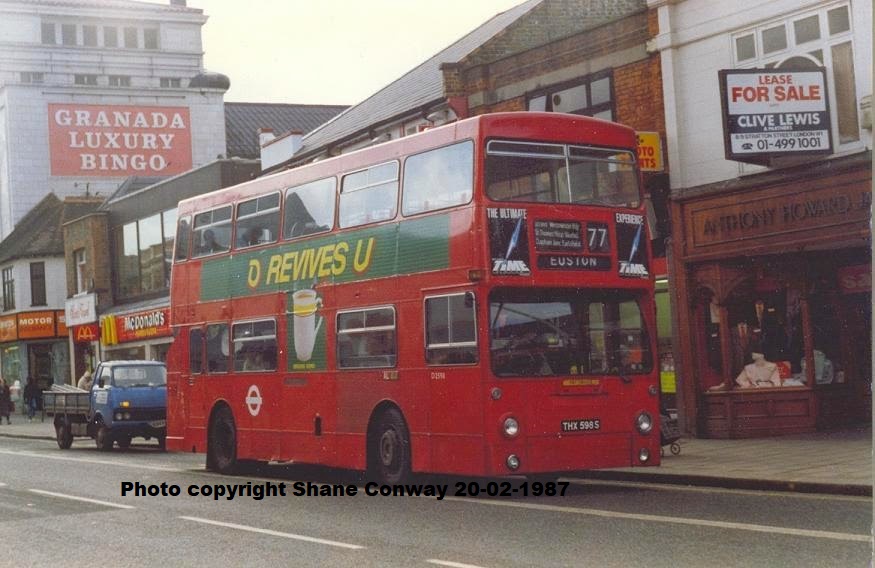
D2598 was captured on route 77 to Euston in 1987.
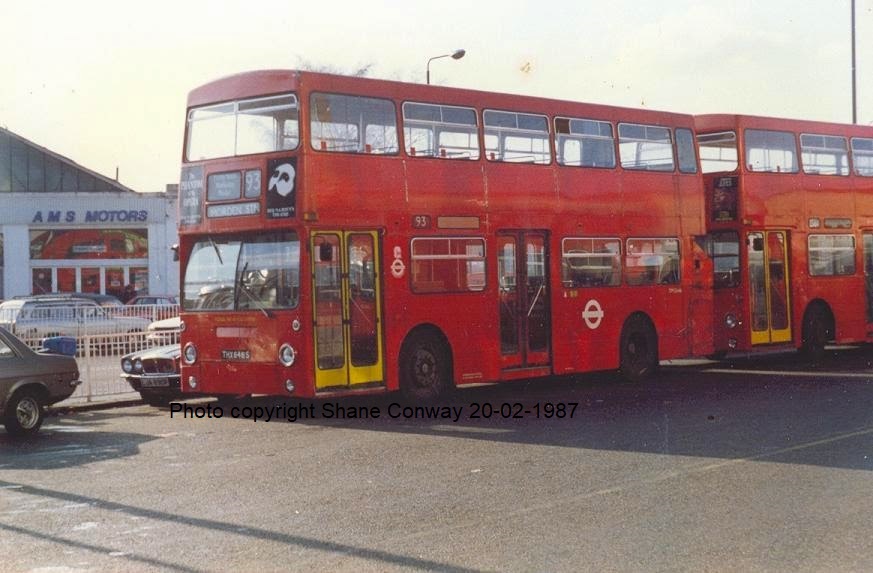
Another bus which survives today is D2646, which has been restored to its Shillibeer livery by Ensignbus as part of their heritage fleet.
A list of some of the many operators who bought ex London Fleetlines.
For more London buses see the AEC Regal T class, the Leyland Tiger PS1 TD class, the trolleybus conversion programme, the Routemaster, the single deck AEC Renowns, and the exported AEC Swifts in Malta.
.For many other buses, have a look at all the other profiles on the Classic Buses menu page.
SOME LINKS WITHIN THIS WEBSITE: Home Email Links THE COMPLETE WEBSITE MENU Events Diary Halfcab list Small-Ads Classic Irish Buses Classic Manx Buses